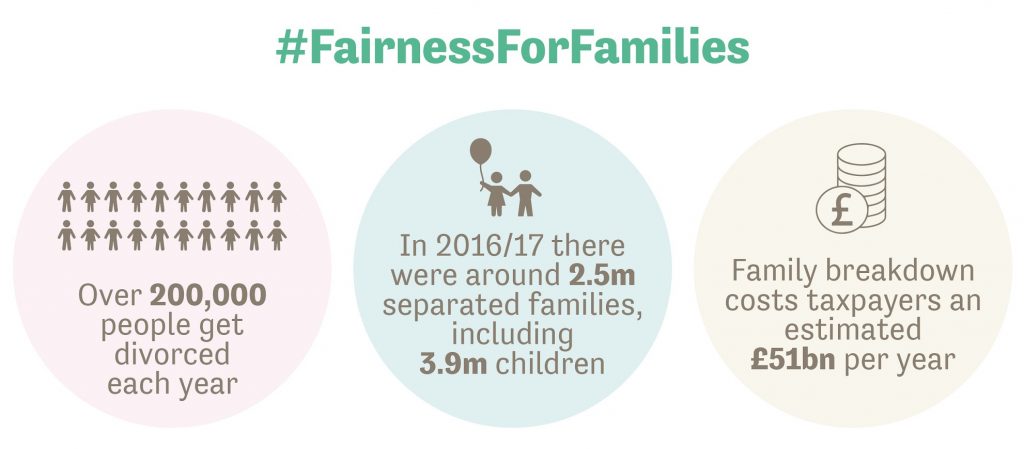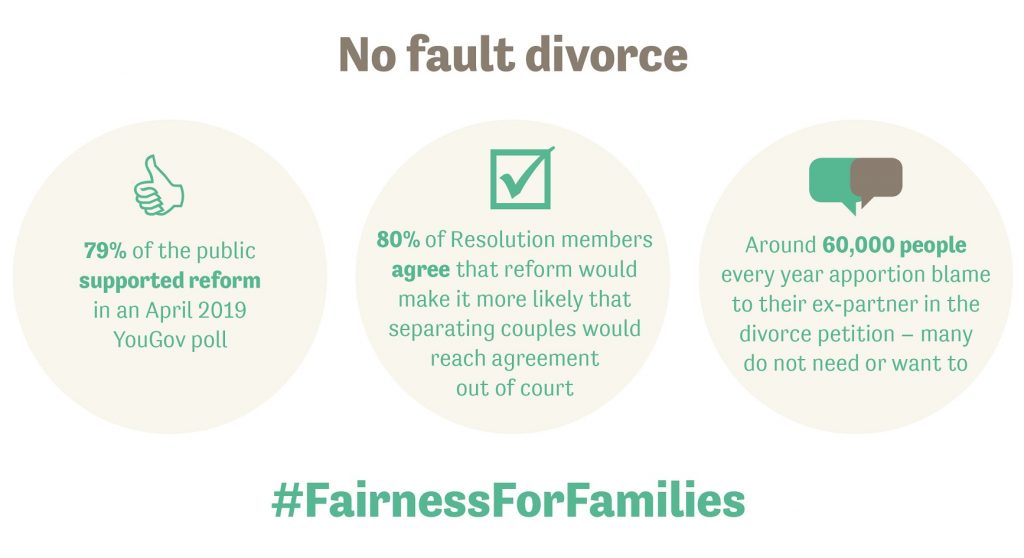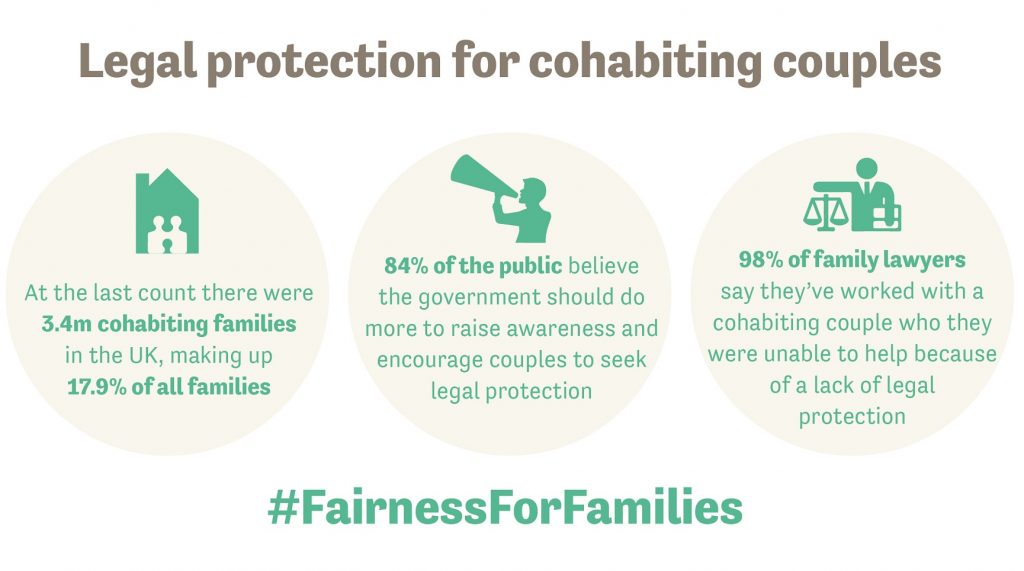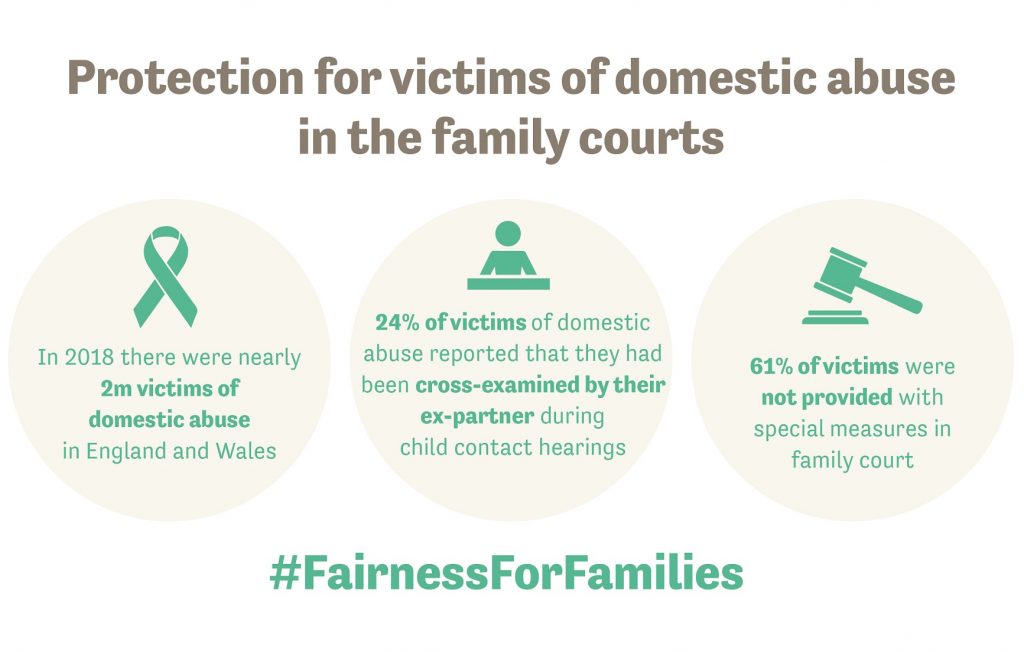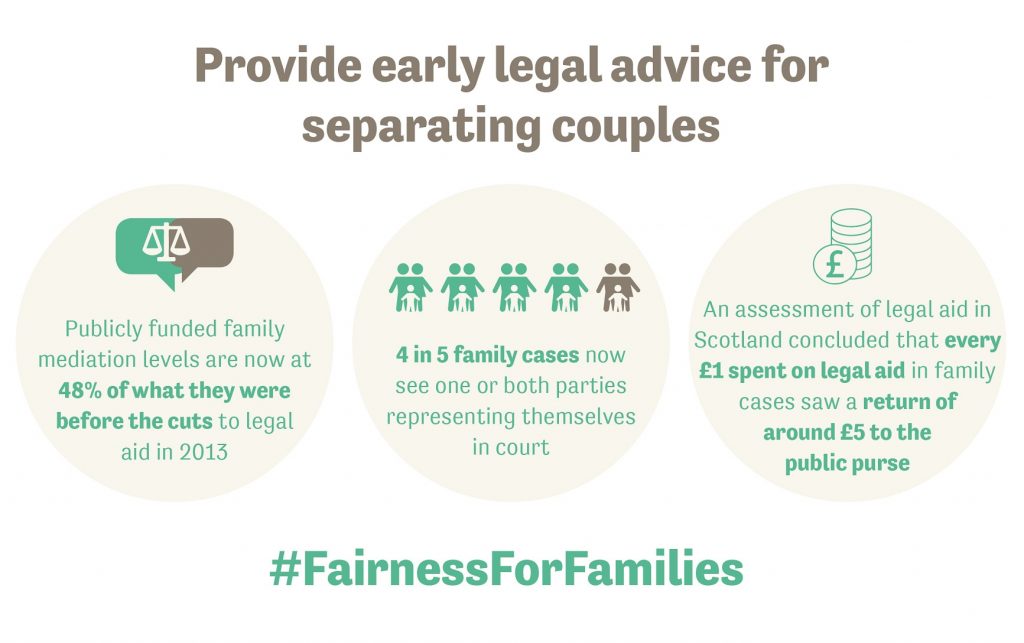Fairness for Families Manifesto
Ahead of the 2019 General Election, Resolution launched our Fairness for Families manifesto. This was part of our ongoing work to support members to persuade Parliamentarians from all parties to support family law reform.
Resolution is the national membership body representing 6,500 family justice professionals. Our members work with separating families every day, to support them to resolve disputes as constructively as possible, with a strong focus on putting the best interests of children first.
However, the current legal framework hampers our members’ efforts. Every day we see the impact of the current failings in the family justice system, and we are calling on all political parties in England and Wales to support our campaign for Fairness for Families.
Fairness for Families focused on four key areas for reform: no fault divorce; legal protection for cohabiting couples at the end of their relationship; protecting victims of domestic abuse; and funding for early legal advice for separating couples.
It has already succeeded in one of these areas: 2020 saw the successful passage of the Divorce, Dissolution and Separation Act, meaning no fault divorce will soon be possible in England and Wales.
On top of the emotional cost of family breakdown, it is estimated to cost the country £51bn per year. We believe that by making the family justice system fairer, and supporting those most in need, these costs can be significantly reduced.
We welcome the introduction of no fault divorce, and call on all political parties to support our call for reform in other key areas and commit to bringing forward and supporting legislation at the earliest opportunity.
You can read more about our 2019 Manifesto below and download the PDF via the link.
Download the Fairness for Families Manifesto Print the Fairness for Families pledge poster
